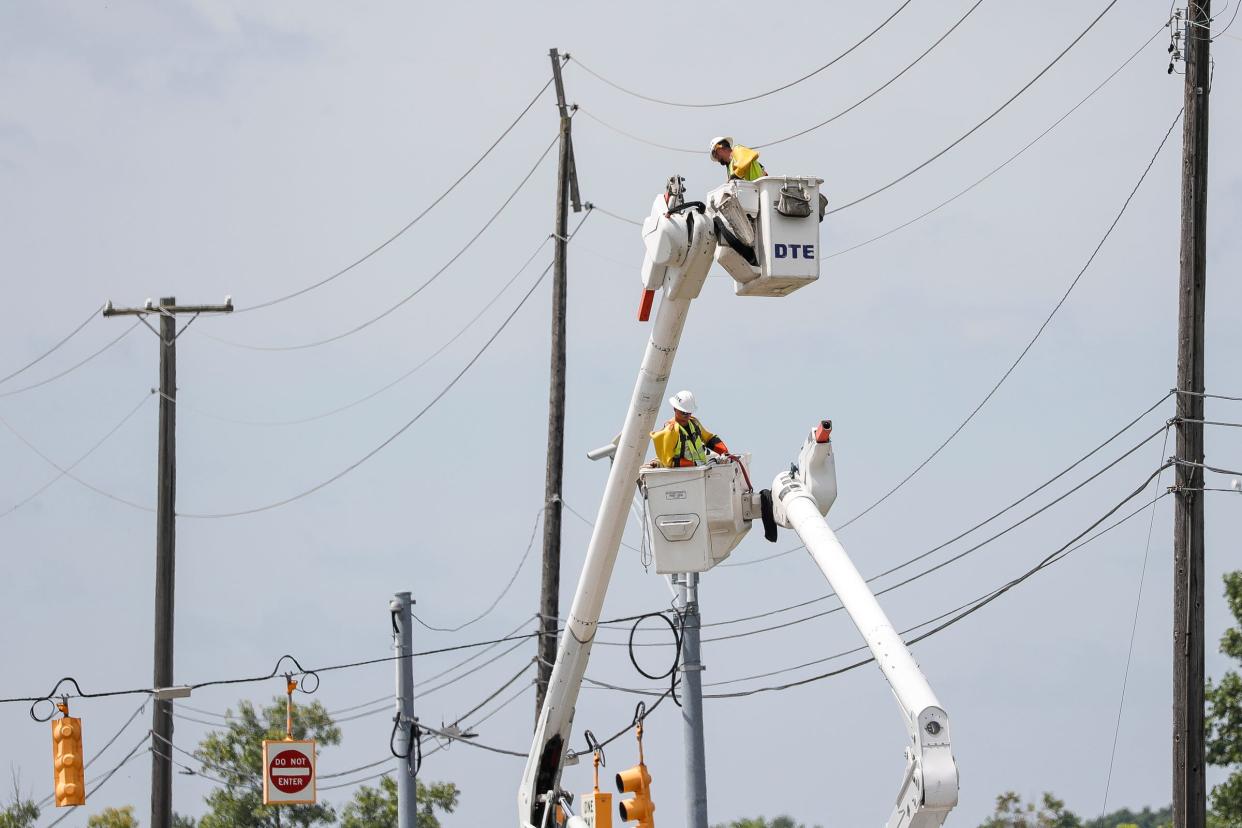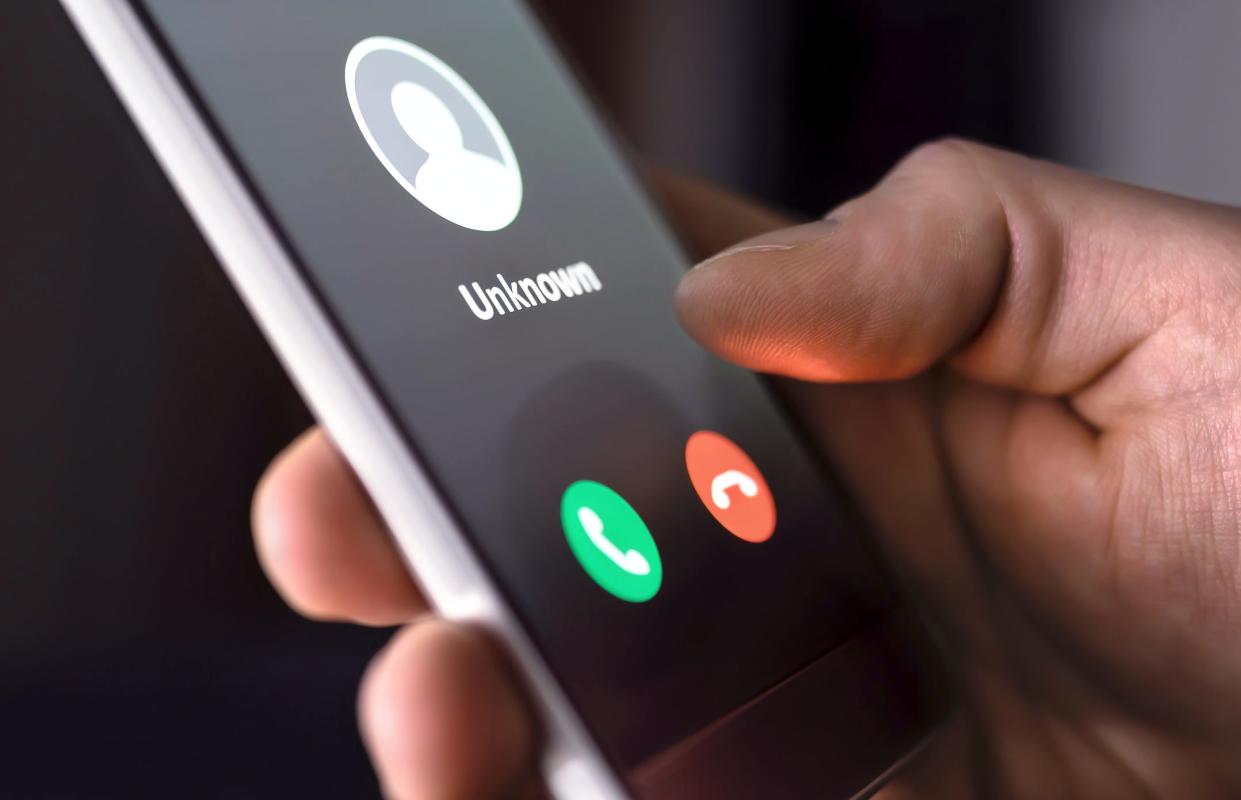Now scammers are impersonating utility companies with caller ID
The caller ID on her phone indicated that she was talking with someone from DTE Energy, her utility company in Troy, Michigan.
The caller claimed she owed $1,900, and that if she didn't pay, her service would be cut off in late April.
The number on the ID was 800-477-4747 – the real phone number for the utility. When the woman said she couldn't pay it all at once, the caller agreed to accept $700 to keep the service on.
She panicked and paid $700 via the mobile wallet Zelle, according to a police report, before she realized that the whole thing was a scam.
IT WASN'T FREE: TurboTax settlement: Firm to pay $141 million for false promises of free filing
INFLATION HEDGE: Fear the Fed's rate raise? Savers can fight back with these 9.6% inflation-proof US bonds
Fake caller ID can trick many
The $700 loss is one more reminder that one can't be too careful when it comes to caller ID – and it's another reminder that scammers are impersonating utility companies once again. Now, they're asking people to pay by money transfer apps.
If you authorize a payment via Zelle, even if it's a scam, you may not be able to get your money back. You'd never give cash to a stranger, so you have to treat Zelle the same way.
Across the country, we're hearing reports of utility shutoff scams. In Iowa, MidAmerican Energy customers reported receiving threatening calls from scammers about unpaid bills. Con artists who appeared to be from Dominion Gas in Ohio even showed up at the door in some areas threatening shutoffs, according to the Better Business Bureau Serving Greater Cleveland.
Energy bills went up significantly during the cold months. Such scams aren't limited to winter, though, as scammers can pop up after the air conditioning has been running nonstop and driven up bills.
Threats of immediate shutoffs
Scammers try to scare you into thinking that your service will be shut off as soon as 30 minutes from now. When you're fearful, the odds go up that you'll hand over your bank account or credit card information.
Michigan consumers are seeing a flood of calls this spring from utility robocalls that claim to be coming from DTE.
RATE HIKE IMPACT: How Fed's bigger, faster rate hikes will affect your credit card, mortgage, savings rates
IRS MESS: After waiting two years for a stimulus payment, the IRS paid us twice
DTE tracks the number of cases where customers confirmed they’ve paid a scammer or provided sensitive information and has received reports of 47 scam cases this year, spokeswoman Katie Susko said.
Susko said that so far in 2022, about 97% of the shutoff scams requested payment through Zelle; 3% requested payment through a Green Dot prepaid debit card.

Don't send money to strangers by Zelle
If you pick up one of these shutoff robocalls, you'd hear an automated recording that claims your service is about to be disconnected. In some cases, the caller might even know your name and address.
Allowing someone to pay by Zelle might be easier than asking them to put money on gift cards, a longstanding scam tactic.
But Zelle doesn’t offer a protection program for authorized payments, and says you should use the app only to pay people you trust.
The best defense remains simply to not engage. Do not to answer the phone, or hang up immediately.

Impersonation is part of the scam game
Remember, scammers are able to use new technology that can make a message look more believable through lookalike phone numbers, emails and automated voice messages.
Scammers have been known to spoof law enforcement, claiming that they're conducting an investigation, and then demanding money so that you supposedly avoid arrest or other legal trouble.
Another utility robocall twist: The callers convince you that you've been overpaying on a utility bill and are now entitled to a cash refund. The Federal Trade Commission warns that call could be a ploy to get you to switch service providers.
Some tips:
Is this robocall the first time you're hearing of trouble? Before any shutoffs, a utility is typically going to notify you several times via mail or phone about nonpayment issues.
Is someone demanding money right now? A real utility isn't going to do that.
Even if the caller insists your services will be shut off, never give banking information over the phone unless you place the call to a number you know is legitimate, according to a warning by the FTC.
Did someone just show up at the door? It would be extraordinary for a utility to do that. Ask for a personal identification badge or call the utility to verify the work at your home.
Is someone telling you how you must pay the bill? A legitimate utility gives you a variety of ways to pay. DTE, for example, said it isn't going to demand money via Zelle, prepaid debit card or Bitcoin.
You can report scams at BBB.org/scamtracker.
If you believe that you may have been a victim of fraud or scams, realize it can happen to anyone. Take immediate action. Contact your bank, credit card issuer or local law enforcement to report the fraud or scam.
DTE encourages customers to challenge the caller. Ask the caller to tell you the amount owed on your latest bill. Or tell the caller to state your account number.
Utility companies aren't imposing unrealistic deadlines, like paying up in the next 30 minutes or next two hours. They won't ask for Social Security numbers for unpaid bills Or payments via gift cards or Zelle.
Contact Susan Tompor via stompor@freepress.com. Follow her on Twitter @tompor.
This article originally appeared on Detroit Free Press: Scammers use new technology to trick you out of your money
